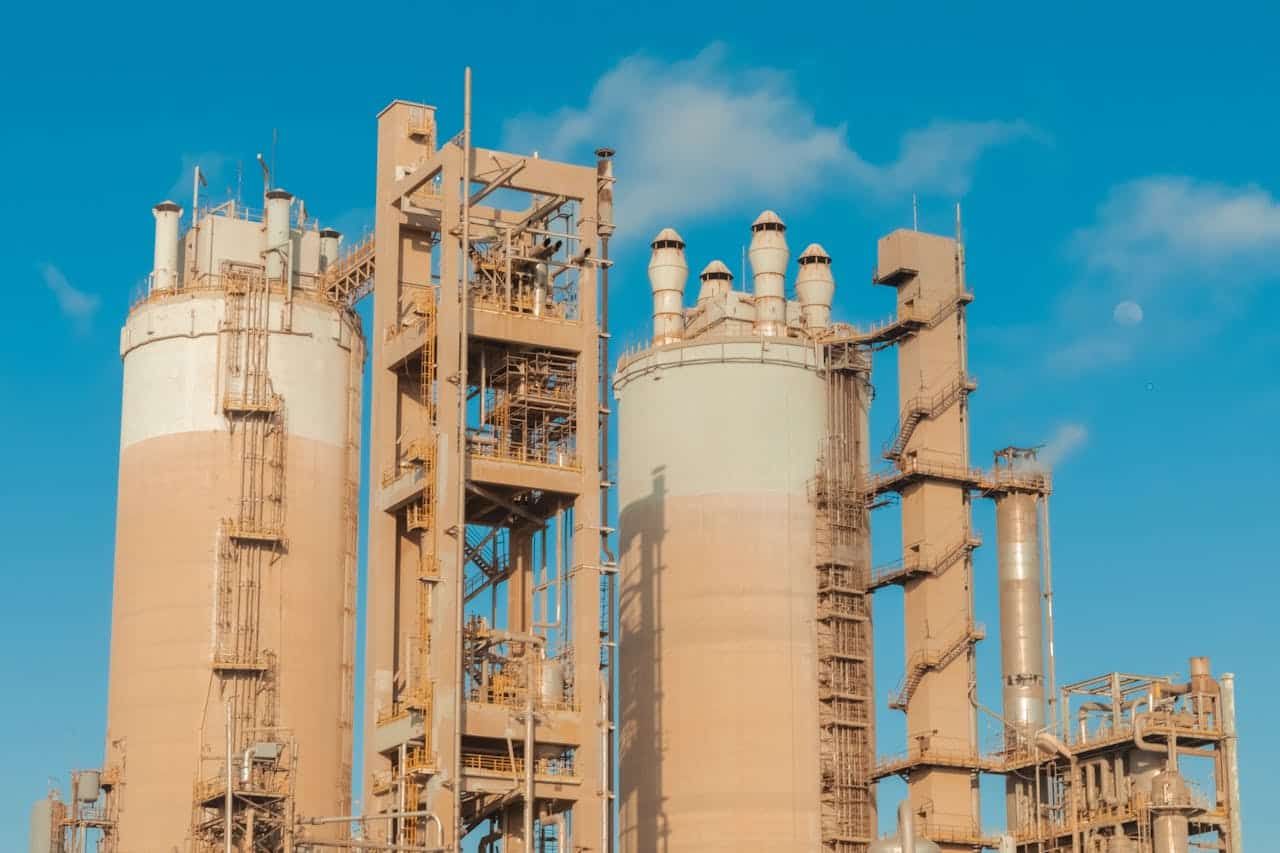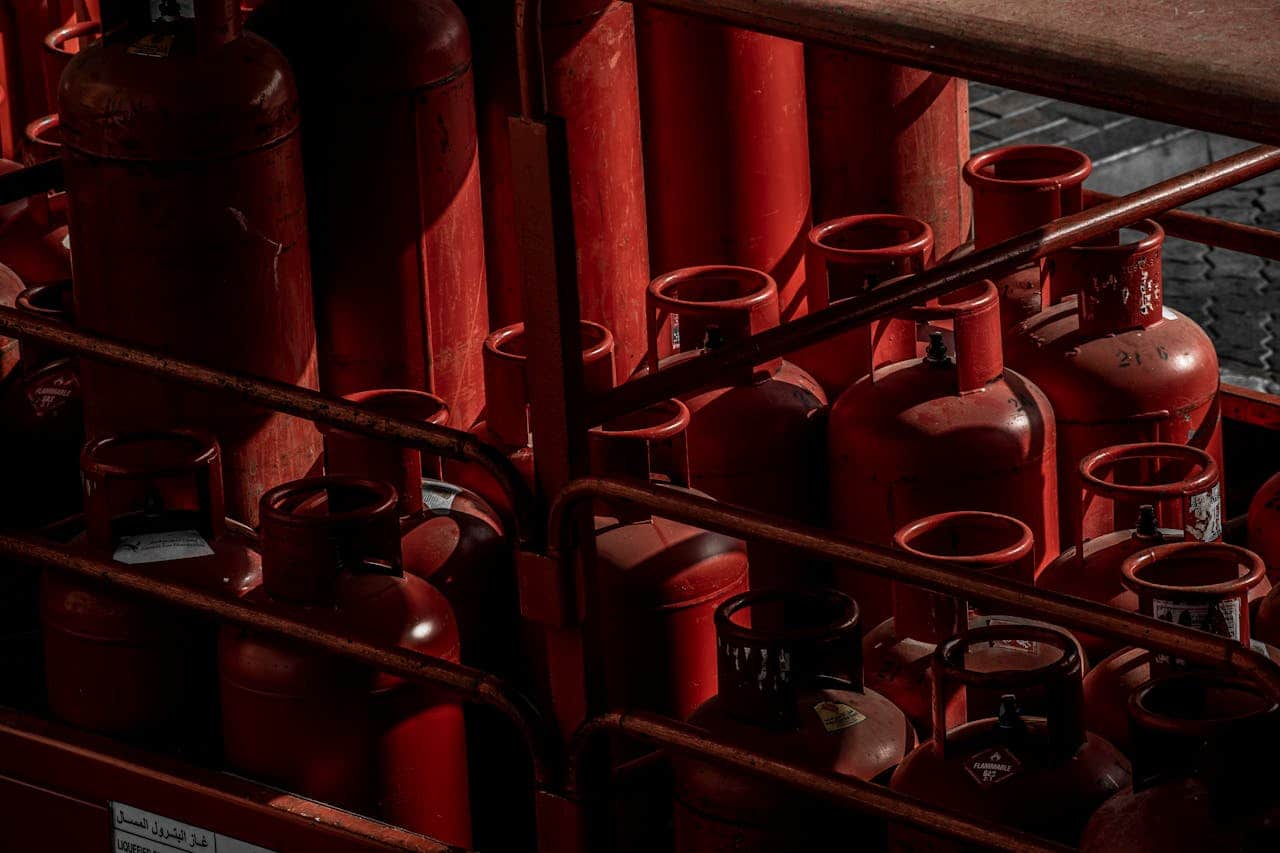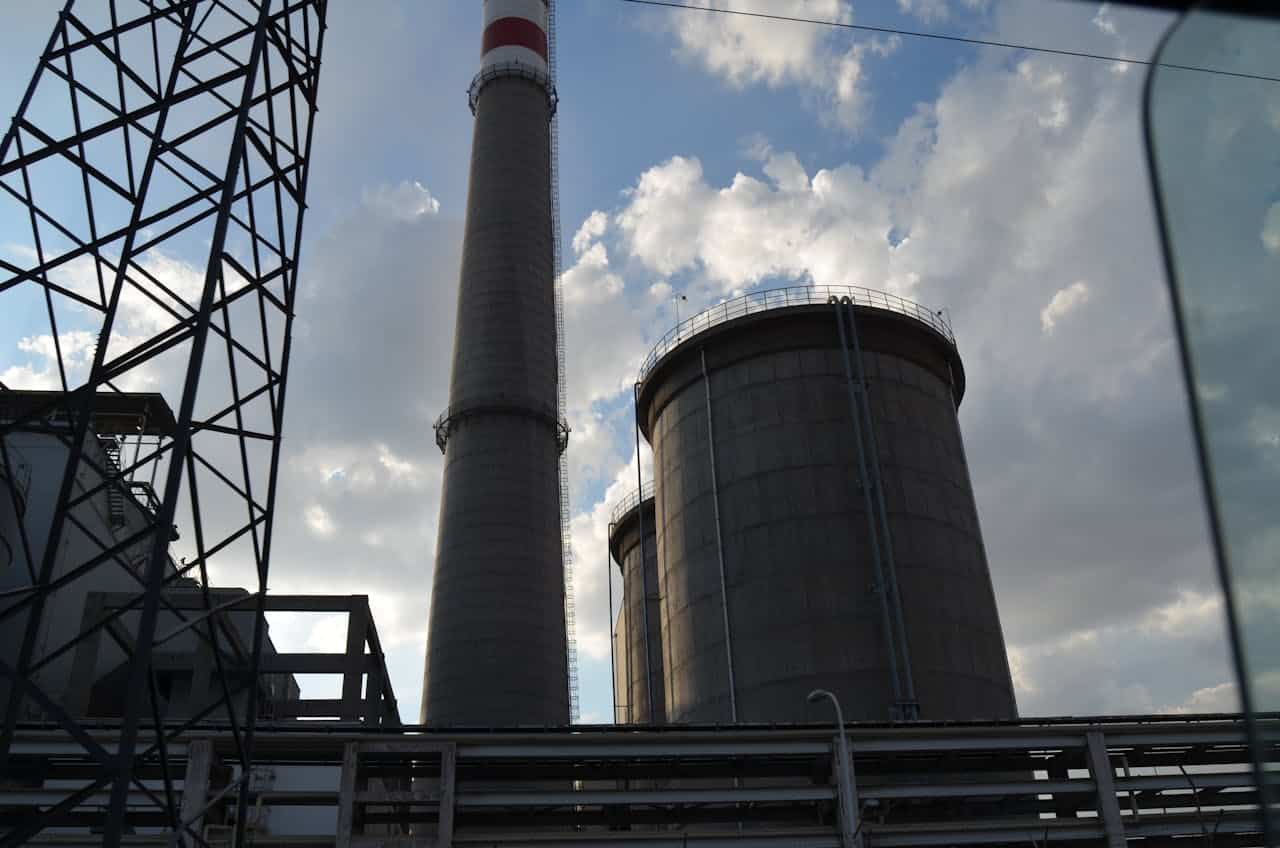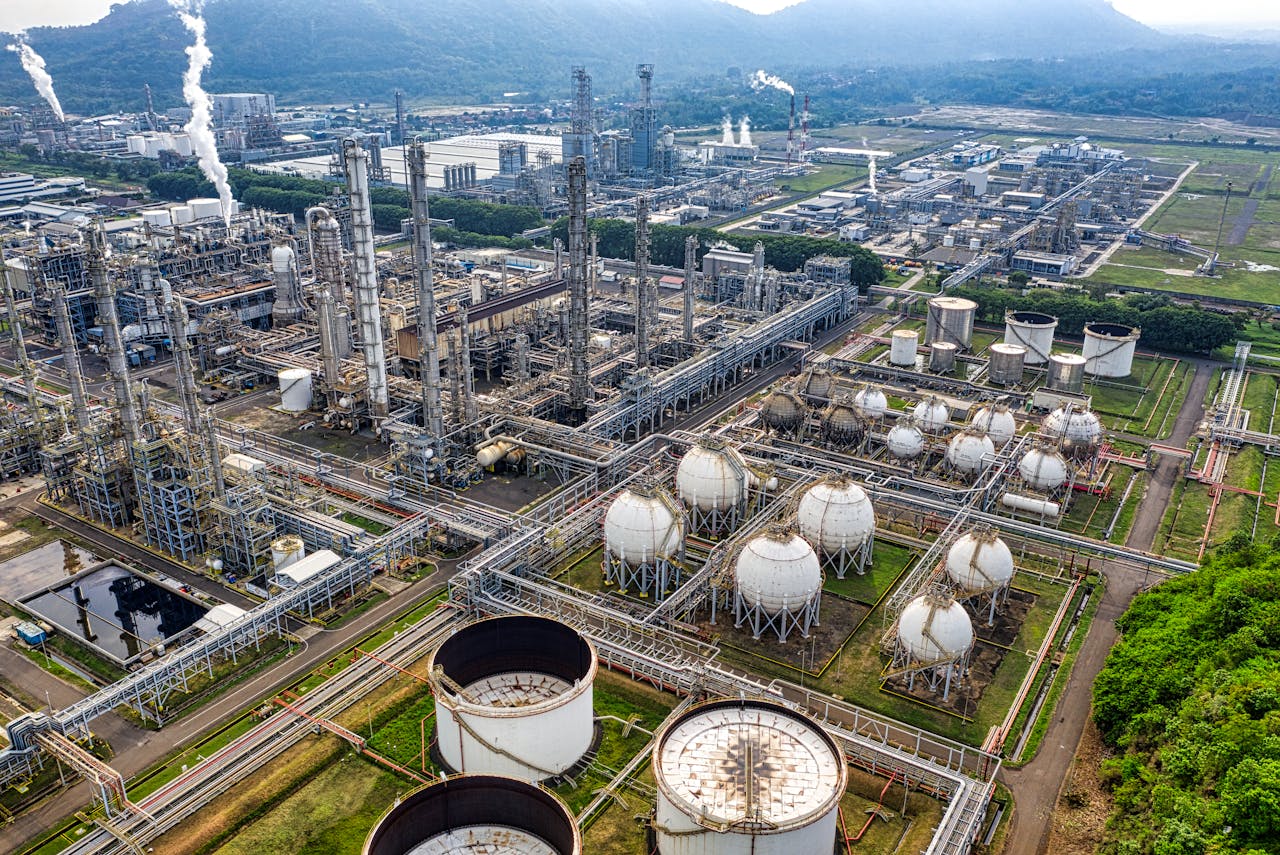Mini MBA: Oil Refinery Operations
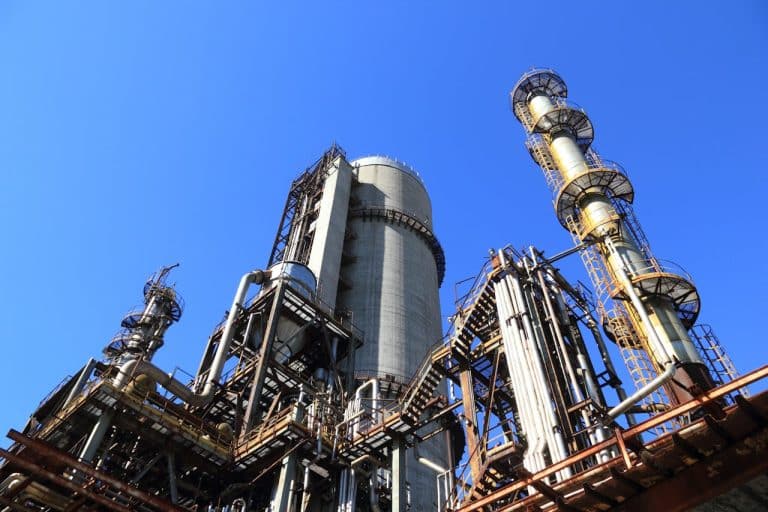
| Date | Format | Duration | Fees (USD) | Register |
|---|---|---|---|---|
| 10 Nov - 14 Nov, 2025 | Live Online | 5 Days | $3785 | Register → |
| 29 Dec - 09 Jan, 2026 | Live Online | 10 Days | $7735 | Register → |
| Date | Venue | Duration | Fees (USD) | Register |
|---|---|---|---|---|
| 21 Nov - 28 Nov, 2025 | Addis Ababa | 5 Days | $5775 | Register → |
| 01 Dec - 05 Dec, 2025 | Cape Town | 5 Days | $5775 | Register → |
Did you know that in 2023, Canada’s Suncor increased refinery throughput by 31% to 487,000 barrels per day and achieved 104% refinery utilisation? This compelling statistic underscores the critical importance of refining optimization and operational excellence in today’s petroleum industry.
Course Overview
The Mini MBA in Oil Refinery Operations is meticulously designed to equip professionals with cutting-edge knowledge in refinery process management, refining operations, and strategic decision-making in refining. This comprehensive programme focuses on refinery integration, refining efficiency, and refinery planning to ensure participants can effectively navigate the complex landscape of petroleum refining.
Why Select This Training Course?
Selecting this Mini MBA offers numerous advantages for refining professionals and refinery planners involved in petroleum refinery processes. Participants will gain advanced knowledge of refinery yields, refining complexity impacts, and major refining processes. The course provides hands-on experience with process fluid yields and crude oil yield processes, enabling attendees to optimise their refinery operations effectively.
For organisations, investing in this training enhances overall refinery profitability and strengthens operational excellence in refinery management. By ensuring that personnel are well-trained in refining optimization, organisations not only protect their assets but also build sustainable practices. Research shows that companies implementing comprehensive refinery technology can significantly improve performance. For instance, a leading European refinery achieved a 34% increase in throughput through advanced process optimisation strategies.
Individuals who complete this course will benefit from enhanced career prospects as they become more valuable assets in their fields. The skills acquired through this training can lead to professional growth and increased responsibilities within their organisations. Studies indicate that with innovations like Pertamina’s sustainable aviation fuel production starting in Q1 2025, producing 300,000 kiloliters annually, the demand for skilled refining technologists continues to rise.
Elevate your refining capabilities – Join our next session!
Who is this Training Course for?
This Mini MBA is suitable for:
- Refinery managers and operations leaders.
- Engineers specialising in refining processes.
- Business development professionals in the oil sector.
- Regulatory compliance officers in refining.
- Project managers overseeing refinery projects.
What are the Training Goals?
The objectives of this training course are to enable professionals:
- To master the intricacies of refining operations and management.
- To leverage technology for operational efficiency and environmental sustainability.
- To understand the economic, regulatory, and strategic facets of refinery management.
- To develop leadership skills tailored to the refining industry.
How will this Training Course be Presented?
The Mini MBA in Oil Refinery Operations employs a comprehensive and innovative approach to ensure maximum knowledge retention and skill development. Expert-led instruction from seasoned refining professionals forms the core of the course, providing up-to-date insights into modern refining techniques and practical applications.
Our training methodology includes:
- Interactive sessions with refining experts
- Case study analysis of successful refinery integration
- Practical workshops on optimization in refinery utilization
- Group projects focused on supply chain in refining
- Access to extensive industry resources and networks
Ready to master refinery operations? Secure your spot today!
Course Syllabus
Module 1: Refinery Process Management
- Comprehensive understanding of crude oil distillation.
- Conversion processes: cracking and coking.
- Catalytic reforming for high octane gasoline.
- Hydrodesulfurisation and hydrotreating for cleaner fuels.
- Alkylation and isomerisation for product enhancement.
- Blending strategies to meet fuel specifications.
- Waste management and byproduct utilisation.
- Energy efficiency in refining processes.
- Quality control and product assurance.
- Maximising yield through process integration.
- Safety protocols in high-risk refining environments.
- Automation and control systems for process stability.
Module 2: Refinery Economics and Planning
- Cost structures within refining operations.
- Margin analysis for various petroleum products.
- Impact of crude oil price volatility on refining profitability.
- Strategic planning for capacity utilisation.
- Investment analysis for refinery upgrades.
- Hedging strategies against market fluctuations.
- Optimising feedstock selection for economic benefits.
- Tax considerations in refining operations.
- Benchmarking against industry standards.
- Economic models for new process introductions.
- Supply chain optimisation for cost reduction.
- Financial metrics for performance evaluation.
Module 3: Health, Safety, and Environmental Regulations
- Compliance with OSHA, EPA, and other regulatory bodies.
- Risk assessment and management in refining.
- Emergency response planning for chemical incidents.
- Pollution control technologies for air and water.
- Waste management practices in refineries.
- Noise and vibration control measures.
- Strategies for reducing greenhouse gas emissions.
- Safety culture development in refineries.
- Training for handling hazardous materials.
- Audits for compliance and continuous improvement.
- Legal implications of non-compliance.
- Environmental impact assessments.
Module 4: Operational Excellence in Refining
- Lean management principles applied to refining.
- Continuous improvement methodologies like Six Sigma.
- Process optimisation through data analytics.
- Predictive maintenance using machine learning.
- Energy management and conservation strategies.
- Automation in refining operations.
- Quality management systems in production.
- Capacity planning and scheduling.
- Inventory management for raw materials and finished goods.
- Performance metrics for operational efficiency.
- Root cause analysis for process deviations.
- Cross-functional team collaboration for operational gains.
Module 5: Digital Transformation in Refining
- IoT for real-time process monitoring.
- Digital twin technology for refinery operations.
- AI in predictive maintenance and process control.
- Cybersecurity in refining operations.
- Big Data for strategic decision-making.
- Automation in quality control and testing.
- Robotics in maintenance and inspection.
- Blockchain for supply chain transparency.
- Digital platforms for workforce management.
- Integration of ERP systems in refining.
- Virtual reality for training and simulation.
- Technological advancements in catalyst management.
Module 6: Refinery Project Management
- Project lifecycle in refining infrastructure.
- Scope, time, and cost management in projects.
- Stakeholder management for refinery projects.
- Risk assessment for project execution.
- Resource planning for refinery expansions.
- Project scheduling and critical path analysis.
- Quality assurance in project deliverables.
- Change management during project implementation.
- Commissioning and start-up of new facilities.
- Decommissioning and asset retirement strategies.
- Managing turnarounds and shutdowns.
- Lessons learned for future project enhancements.
Module 7: Supply Chain and Logistics
- Supply chain optimisation for refining inputs.
- Logistics of crude oil transportation and storage.
- Product distribution network planning.
- Managing third-party logistics providers.
- Inventory control for crude and products.
- Strategic sourcing of raw materials.
- Integration of logistics with production planning.
- Emergency logistics for supply disruptions.
- Sustainable practices in refinery logistics.
- Cost management in logistics operations.
- Reverse logistics for waste and byproducts.
- Blockchain applications in logistics for traceability.
Module 8: Human Resources and Workforce Development
- Workforce planning in cyclical refining markets.
- Talent management and retention strategies.
- Training and development for technical skills.
- Performance management in refining operations.
- Safety training for high-risk environments.
- Managing diverse and multicultural teams.
- Employee engagement and motivation.
- Leadership development for refinery managers.
- Succession planning for critical roles.
- Compliance with labour laws and regulations.
- Health and wellness programs for workers.
- Innovation in HR practices for refinery settings.
Module 9: Refinery Turnarounds and Maintenance
- Planning and executing major turnarounds.
- Maintenance strategies for operational continuity.
- Preventive vs. predictive maintenance approaches.
- Safety during shutdowns and startups.
- Resource management for maintenance projects.
- Outsourcing vs. in-house maintenance decisions.
- Digital tools for maintenance scheduling.
- Managing contractor performance and safety.
- Cost control in maintenance operations.
- Post-turnaround performance review.
- Continuous improvement in maintenance practices.
- Emergency maintenance protocols.
Training Impact
Research indicates that organisations implementing structured refinery operations training programmes have demonstrated measurable benefits in both operational efficiency and process optimization. Case studies highlight the following improvements:
From European refinery operations:
- 34% increase in refinery throughput
- Enhanced refining efficiency through advanced process optimization
- Strengthened operational excellence in refinery management
Transform your career in petroleum refining – Enrol now!


